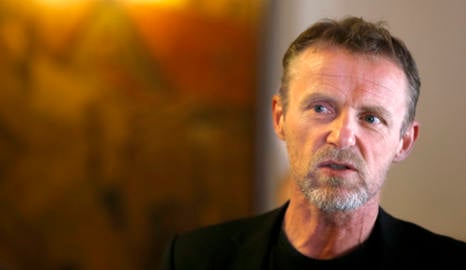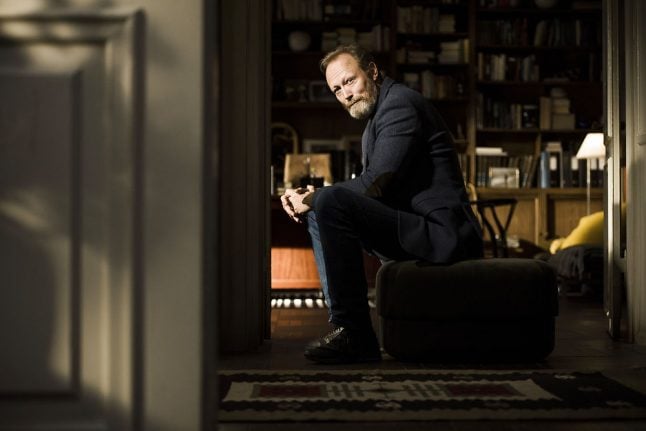NORDIC NOIR
Oslo battles Stockholm for Harry Hole movie
Oslo and Stockholm have entered into a bidding war to try and get the Jo Nesbø thriller The Snowman shot in their city, with both offering funding, free parking and other services.
Published: 21 May 2015 23:36 CEST

Jo Nesbø at a prize-giving in December. Photo: Terje Pedersen / NTB scanpix
The Snowman is the Norwegian crime writer's seventh Harry Hole novel, but the first to be adapted for the big screen, and Oslo's municipality is determined that it should be shot in the city.
So when Stockholm’s film commissioner announced last week that his city would contribute 1.5m Swedish kronor ($180,000) towards the production, as well as well as free parking and other services, in order to encourage the the producers to shoot it in the city, Oslo decided to fight back.
“A week ago, Stockholm tried to steal our city's beloved child Harry Hole,” Oslo's culture commissioner Hallstein Bjercke told NRK. “They must have expected us to react.”
In response, Oslo has pledged to match the Swedish bid, offering almost exactly the same amount of money and the same free services if the film is shot instead on its territory.
On the face of it, the film should by rights be shot in Oslo. After all, Harry Hole is an Oslo-based police detective, and Jo Nesbø is the most acclaimed crime writer in Norway.
But the UK's Working Title films, which is leading the production, has teamed up with the Swedish director Tomas Alfredson, who previously directed “Let the Right One In” and “Tinker Tailor Soldier Spy”
Roger Mogert, Stockholm's Culture Commissioner, accused Oslo's municipal government of behaving “like amateurs”.
“You can’t have film policy based on bidding. That is not what professionals in the film industry do,” he said. “I think it would be great if Oslo, instead of bidding this way, established an independent film policy.”
The Swedish capital has its own film fund, specifically aimed at drawing major international film crews to the city, something the city government believes boosts tourism and improves the city’s international recognition.
“It creates jobs locally, both during filming and afterwards, when tourists arrive to see the locations in the film,” Mogert told Osloby. “For us it is essential that films from Stockholm reach the whole world. It is an amazingly effective way of promoting the city.”
Bjercke was adamant that he was not open for any kind of co-operation between the cities on the Snowman.
“I am open for co-operation with Stockholm on culture, we have done so for many years. But Harry Hole belongs in Oslo,” he said.
Url copied to clipboard!


 Please whitelist us to continue reading.
Please whitelist us to continue reading.
Member comments